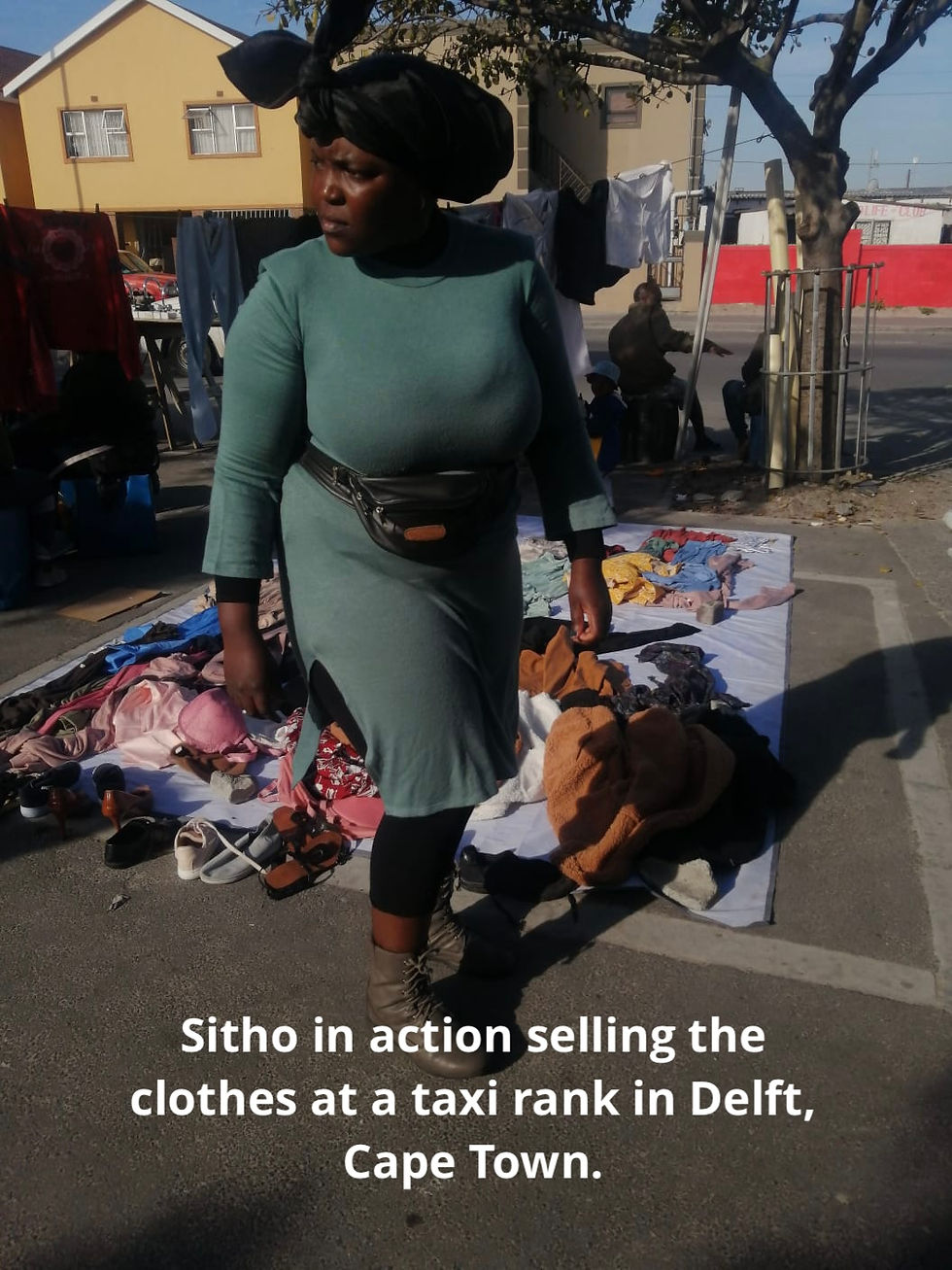A powerful collaboration between YWC and Foschini Group
- Cheryl Sambadzai

- May 6, 2025
- 3 min read
Global warming has become an increasingly hot topic! The environment is on the edge of destruction and this has required some interventions. What’s clothing have to do with it?
Owing to our constant changes in fashion styles and clothing as well as the clothing industry that feeds this lifestyle and consumption; the industry consumes electricity, chemicals to print, and other resources. These increasingly heat the earth beyond what is sustainable as they contribute to carbon emissions. This is why a variety of people including state actors, corporate industries such as clothing, ordinary citizens and organisations must be proactive in tackling this global phenomenon.
These actors find their meeting place at Yes We Can South Africa Foundation through our key partners and collaborators. The Foschini Group (TFG) is one such corporate player that is constantly seeking ways to reduce its carbon footprint while continuing to sustain livelihoods. Recycling is identified as one of the vital components of achieving smarter living. Recycling and upcycling materials and fabric play a central role at YWC. We pride ourselves on upcycle up to 15 tons of waste a year from TFG donations alone and this figure grows annually.
Sitholile Gwenzi is one such example. Sitholile has been part of the organisation since March 2023. Every two or three weeks she collects clothing rejects from us to resell them at a local market in Delft. She was a stay-at-home wife who then began selling clothing rejects from TFG through YWC. With utter joy, she expressed how well this business is going and how she has even managed to maintain a loyal customer base. Because of this, she is now able to send money back home to Zimbabwe to assist her extended family.

Her husband has always been a good and generous husband to her, she explains, but it has brought even more joy to their marriage to lighten his financial burden. He is also equally impressed with how good she has become at saving. Sitholile says that in the past all she used to do with money was spend it! She now hopes to save money for a sustainable business and through YWC, begin sewing classes to secure this independence. Sitholile is a diligent and driven saleswoman. Securing such independence is a matter of just starting! She is not only making her contribution to saving the environment through the sustainable circulation of clothing, but she is also saving towards a fruitful future. Sustainability is at the centre of a long-lasting and fulfilling future for humanity. It is evident through many women who are like Sitholile.

This sustainable human relationship is strengthened between YWC, empowered women, TFG and the world beyond. TFG chose a sustainable collaboration with YWC because there has been dedication and consistency on both ends of the relationship to continue this partnership. As Mila Moreano, YWC Founder, describes it “We can fix their reject garments because we have the sewing skills. TFG also likes the fact that we are quick on collecting their waste as they need space on their factories.” This is one of the fundamental ingredients for impacting change by going the necessary mile to achieve it.
While TFG has never given donations in money, the fabrics, elastic bands, zips, threads, strings, and banners have turned into monetary value. They have done this while sustaining the organisation and the women who are beneficiaries of it. To add to this, Mila says that using recycled material for crafting new bags, for example, allows YWC to pay better wages. Through our interview with her, apart from equipping beneficiaries with knowledge and skills, paying the women the best wages takes centre priority. With a deep heart, Mila exclaimed “We have to balance society.” Faulting on these principles and the corporations that contribute to it would greatly disrupt the equilibrium.
This is not to say that things should forever be this way as inequalities are still deeply rooted in our society. However, little by little we can restore dignity in our communities. Mila has also expressed concern that poverty has only worsened after Covid-19. Adopting a proactive approach, she expressed that “The government cannot do it by itself.” However, she wishes that they would do more to support local and black women as many are informal traders.
“Sustainability allows the recipient to empower themselves forever, just as we may be able to empower ourselves on the planet by interacting with it sustainably. From YWC to TFG and the world, we only hope that sustainability continues to be impactful and yield positive change on both our planet and communities”, explains Mila.






Comments